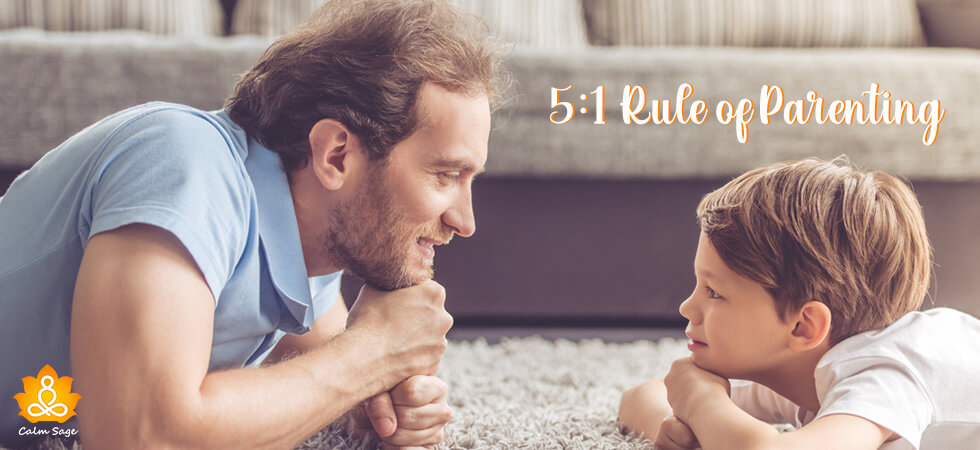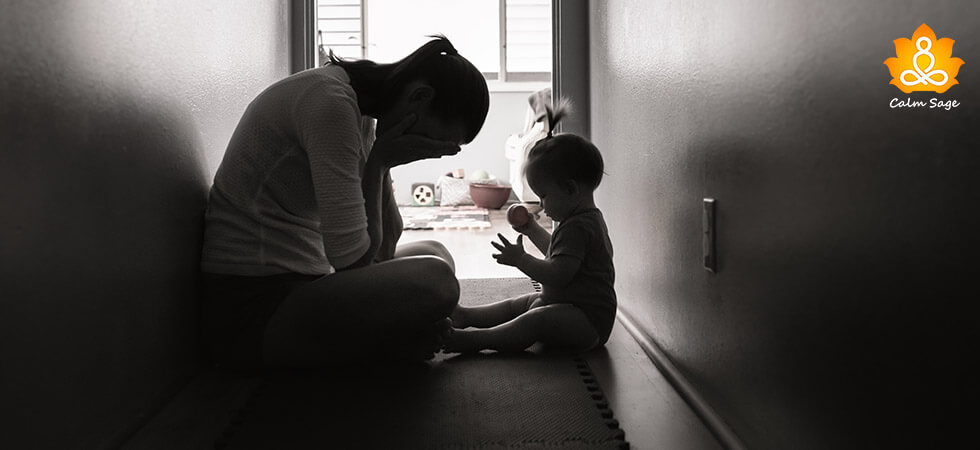These Are The 8 Long Lasting Effects Of Having A Narcissistic Parent

We never put importance on how important relationships around us impact our personality and our temperament. Weirdly, the relationships we see and experience growing up influence who we will become in our future.
No relationship is perfect, including our relationship with our parents. While they may have the best intentions at heart and may want the best for us, they are also bound to make mistakes. However, a parent’s impulse is to always improve and give their child what they need.
Away from all of this, some parents promise to care for their children but may end up mistreating them – intentionally or unintentionally. This parenting style can be toxic and can cause immense trauma and abuse. In such a parent-child relationship, parents often lack compassion and are concerned more about their needs than their child’s.
Although, there’s not much difference between toxic parenting and narcissistic parenting. Just like in toxic parenting a child can be mistreated, in narcissistic parenting, a child’s needs are simply ignored.
This kind of repetitive behavior can leave a child with long-lasting emotional scars that can be difficult to heal. It can leave a child doubting themselves and their self-worth.
Here are 8 long-lasting impacts a narcissistic parent has on a child.
Effects Of Having A Narcissistic Parent

1. Chronic Self-Blame
Narcissistic parents are not necessarily abusive but they do lack emotional understanding and are too concerned about their needs to pay attention to their child’s needs. Emotionally sensitive children can’t just walk away so they grow up with poor self-esteem.
They constantly tell themselves that maybe they are the problem, that if they were calmer their parents wouldn’t ignore them. This constant self-blame can become chronic over time leaving the child of a narcissistic parent with little to no self-esteem.
2. Echoism
If you’re empathetic then you’re more likely to respond to narcissistic parenting with echoism. When a child of narcissistic parents expresses their need, the parent might explode in rage, forcing the child to avoid causing more ruckus.
These people may struggle to speak up for themselves and may often end up tolerating narcissistic traits and narcissism in their other relationships.
3. Insecure Attachment Style
Growing up and living with narcissistic parents where constant neglect and absence is normal, finding a healthy and secure attachment can be tough. Narcissistic parenting can leave you questioning your safety in your other relationships.
When you develop an insecure attachment style, it can either lead to an avoidant attachment where you shut others out or an anxious attachment where you become anxious for attention.
4. Becoming Needy
Another long-term effect of toxic parents is becoming needy. Children of narcissistic parents are often scared of their needs. They may just go along with their parents without needing much from them but when a crisis hits, which may unsettle them, they will call their loved one seeking reassurance.
To them, the quickest way to fulfill the need is to get it met. Quite contradictory but children who are afraid of their needs often grow up to be needy or clingy.
5. Avoiding Emotional Intimacy
If you’re an outgoing child, then you may respond to your narcissistic and toxic parent by avoiding emotional intimacy. You may believe that no one is trustworthy and can be relied upon.
On the other hand, if you’re more of a sensitive person, then you may become selfless and the only way you may seem to enjoy emotional nourishment will be by providing others with the care you never got.
6. People-Pleaser
Emotionally sensitive children of narcissistic parents usually develop a “sixth sense” when it comes to their parents’ needs. They move their life around the needs of others and may develop people-pleasing behavior.
This child may grow up ignoring their needs and perceiving their needs as a burden rather than a priority.
7. Having Narcissistic Traits
If a child is aggressive, then they may respond to narcissistic parents by copying their actions. If you can’t beat ‘em, join ‘em. They may develop narcissistic traits themselves. Well, no one else can make them feel undeserved that way, right?
If you have a stubborn personality then being raised by narcissistic parents who always neglect your needs may make you adopt a narcissistic personality as well.
8. Constant Stress & PTSD
The more toxic a narcissistic parent is, the more chances you have of developing trauma and stress. The constant abuse and neglect may put you in a state of alertness, prepared to dart the danger (in this case, narcissistic rage of the parent).
Living on a constant edge may drive you to develop anxiety issues, post-traumatic stress disorder (PTSD), chronic stress, and emotional numbness.
Final Words
Healing from toxic parenting or narcissistic parenting isn’t easy as growing up with narcissistic parents can leave long-lasting effects on your mental and emotional health as well as your take on your future relationships.
However, you can eventually separate yourself from your toxic parents by setting healthy boundaries, embracing your emotions without judgment, understanding your behaviors, and talking about your experience with a trained professional.
You can connect with a trained and experienced professional on BetterHelp. Sign up below to talk to a professional today,
Book Your Session with BetterHelp
You can also reach out to us at info@calmsage.com or DM us on social media. I hope this article was able to help you understand the effects of toxic parents or narcissistic parents have on a child. You can share your thoughts in the comments below!
Take care.




















